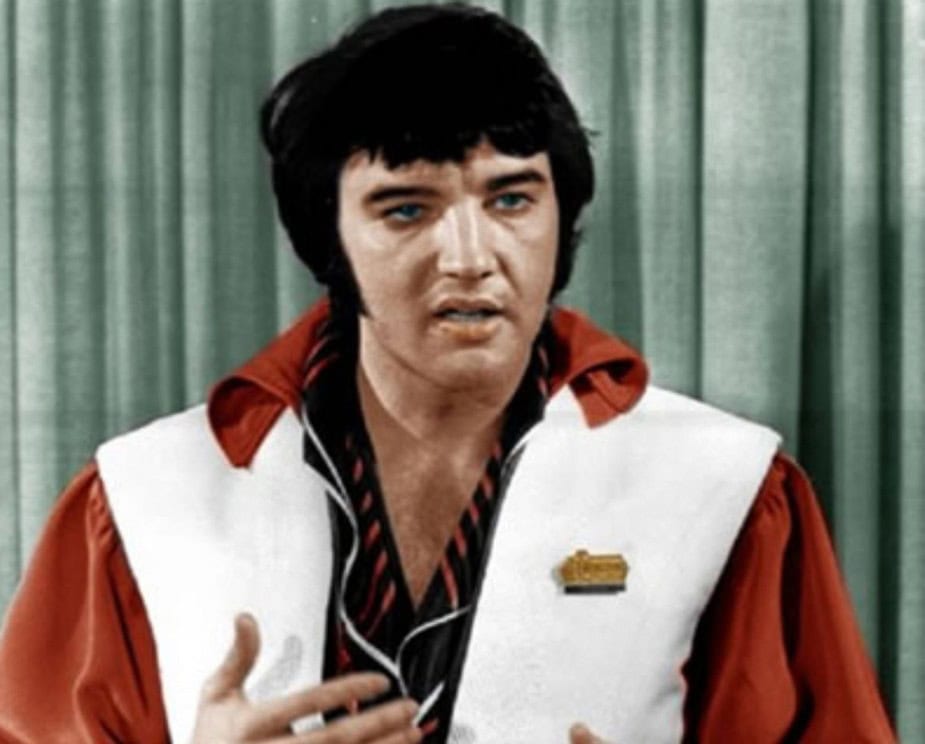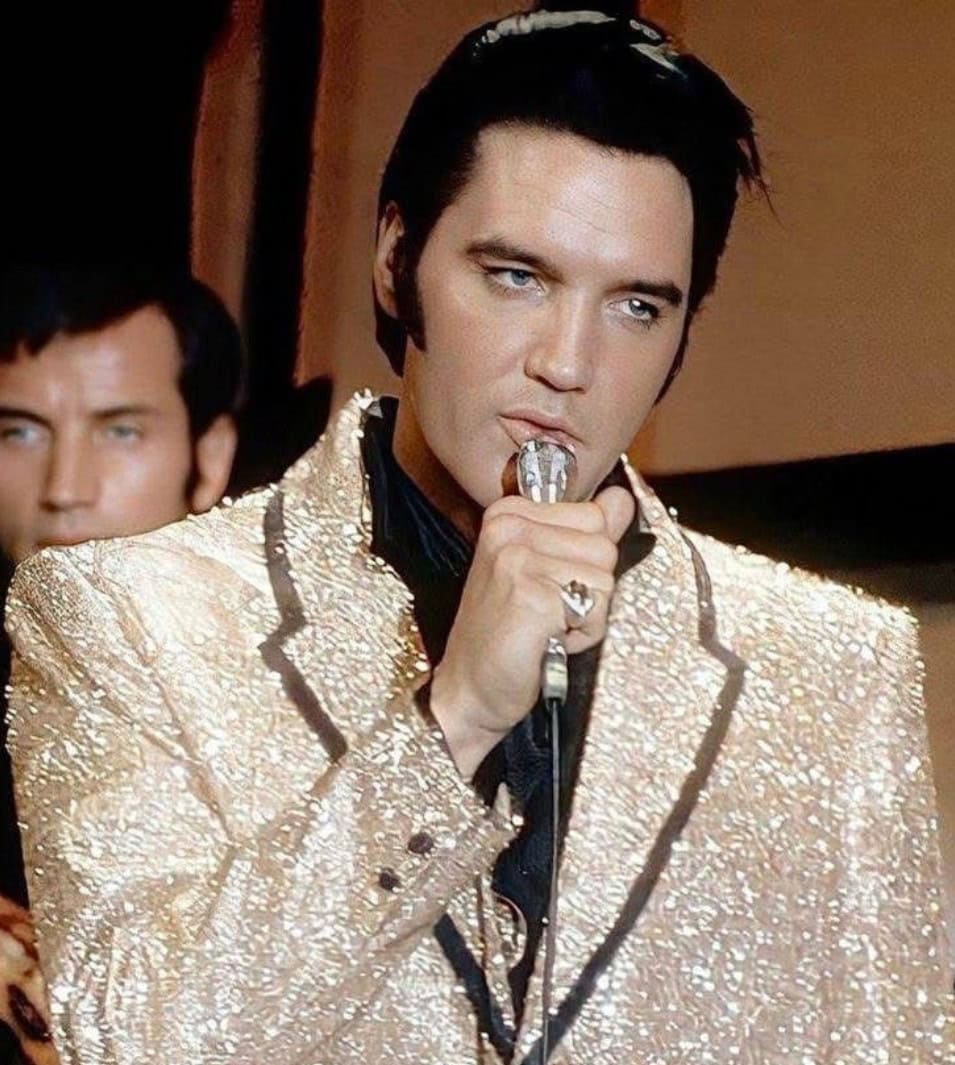
About the song
The moment Elvis stepped into the silver haze of the stage, time seemed to hesitate. He wasn’t merely performing—he was unfolding, a living enigma wrapped in the quiet power of moonlight. Every note slid between shadows and light, tremulous yet daring, as if he were confessing secrets the world wasn’t ready to hear. The crowd didn’t just listen; they held their breath, sensing that something fragile and eternal hovered in that space, suspended between the music and the dark.
His movements were small earthquakes, bending the air, rewriting the rules of presence. A tilt of the head, a step forward, a gentle sway—they carried a language beyond words, one that whispered of longing, rebellion, and the ache of being fully alive. And in that delicate tension, he became both distant and achingly near, a phantom who could stir laughter and tears in the same heartbeat.
Elvis didn’t just sing songs; he sculpted emotions, carving landscapes of memory that clung to the skin like warm shadows. Each chord trembled with histories unseen, each pause between lyrics a quiet rebellion against the ordinary. Fans weren’t spectators—they were travelers drawn into a nocturnal realm where hearts dared to remember who they truly were.
Even after the lights dimmed, even when the last echo faded into silence, the residue of his presence lingered like moonlight on water: cold, luminous, impossible to capture, yet impossible to forget. He was the Moonlight King, yes—but more than a king, he was a mirror, reflecting the secret spaces inside us all. And in that reflection, we realized something undeniable: the magic of his existence was not just in the music he made, but in the way he made us feel seen, fragile, and alive.
